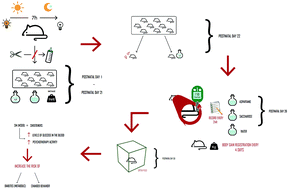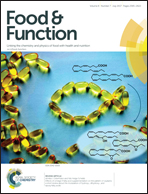Early maternal separation induces preference for sucrose and aspartame associated with increased blood glucose and hyperactivity
Abstract
Early life stress and exposure to sweeteners lead to physiological and behavioral alterations in adulthood. Nevertheless, many genetic and environmental factors as well as the neurobiological mechanisms that contribute to the development of these disorders are not fully understood. Similarly, evidence about the long-term metabolic effects of exposure to sweeteners in early life is limited and inconsistent. This study used an animal model of maternal separation during breastfeeding (MS) to analyze the effects of early life stress on consumption of sweeteners, weight gain, blood glucose and locomotion. Rats were housed under a reversed light/dark cycle (lights off at 7:00 h) with ad libitum access to water and food. In the MS protocol, MS pups were separated from the dam for 6 h per day in two periods of 180 minutes (7:00–10:00 and 13:00–16:00 h) during the dark phase of postnatal day (PND) 1 to PND 21. Non-separated (NS) pups served as controls. On PND 22 rats were grouped by sex and treatment. From PND 26 to PND 50 sucrose and aspartame were provided to rats, and sweetener intake, body weight and blood glucose-related measures were scored. On PND 50, both male and female rats were exposed to the open field test to obtain locomotion and anxiety-related measures. Results showed that both early maternal separation and sweetener intake during adolescence resulted in increased blood glucose and hyperactivity in male rats but not in female rats. Data suggest that the combination of early stress and exposure to sucrose and aspartame could be a risk factor for the development of chronic diseases such as diabetes, as well as for behavioral alterations.



 Please wait while we load your content...
Please wait while we load your content...